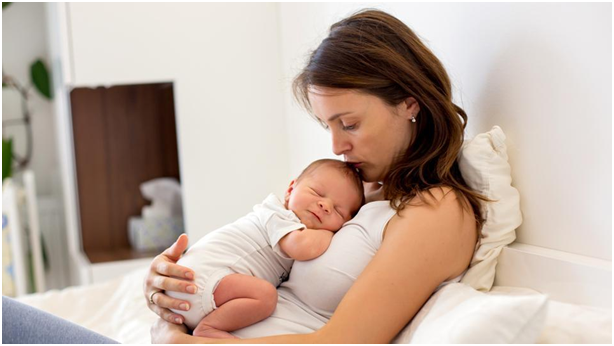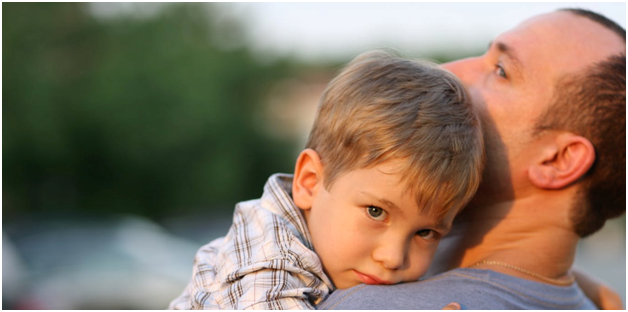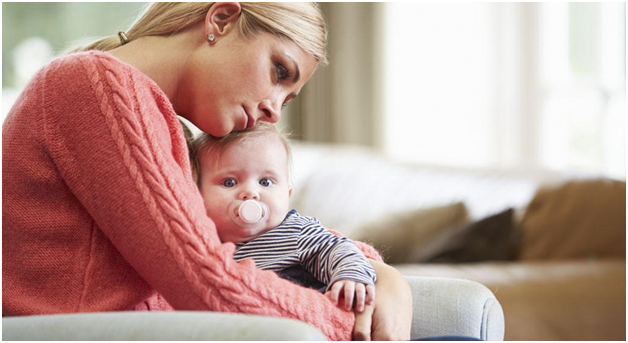
During pregnancy, most mothers can’t stop building castles in the air of how jovial it would be when the baby finally comes. This is normal since you desire to love and take care of your baby. These feelings turn to be opposite in some mothers when they have their babies. Many mothers go for days without sleep, and those who don’t have help with the baby may develop feelings of frustration.
According to research, about 15% of mothers suffer from postpartum depression. It is normal for your baby responsibilities to overwhelm you but if the baby blues affect your emotions tremendously, it may lead to this form of depression. The worst case scenario is mothers developing suicidal thoughts during this phase. The following discussion enlightens you on why you may be going through such feelings and what you can do to take care of yourself and your newborn.
What are the signs of postpartum depression?

Unlike the usual baby blues which disappear after the first few weeks of delivery, depression does not go away. Instead, it gets worse by the day, and the crying of your baby may make you feel helpless. You develop worse mood swings than the typical baby blues. It may make you irritable and affect how to care for your baby.
Most depressed mothers withdraw from caring partners and blame them for their current situation. The mother instinct that comes from bonding with your child becomes difficult to develop. Postpartum depression also causes anxiety and feelings of guilt. Worthlessness may creep in, affecting your sleeping patterns. It can make you question your existence leading to suicidal thoughts.
What causes such severe symptoms?
Doctors report that not all mothers develop postpartum depression. The circumstances surrounding one can trigger this condition. Some common causes include:
Hormonal fluctuations
Estrogen and progesterone hormones may be high during pregnancy, but when you deliver, they drop significantly. Your thyroid can also decrease and affect your mental stability. The end of the nine of months of carrying your child also comes with adjustments in blood pressure as well as your overall immune system. All these changes can trigger postpartum depression.
Pain
The pain that comes with child delivery is like no other. Your body might be slow to heal affecting your emotions. Most women also accumulate baby fat which makes one insecure about how much weight they are gaining. Your inability to regain your small waistline fast can affect your mentality.
External stressors

Constant worry about not having sufficient resources like money to sustain your child can also lead you to depression. Lack of experience for first-time mothers makes stress levels increase. Lack of support in a case where the partner is not around to help you with your child may cause regrets in a mother.
Help for postpartum depression
Try to create a bond with your child
It is possible for a mother in this state to refuse to breastfeed the child. They interact less with a child due to overwhelming feelings in their minds. The bond may not come naturally to some mothers, but you can create it gradually. Find ways to interact with your child by singing to them or reacting to their smile.
Secure an attachment with your child by attending to their physical and emotional needs. Apart from breastfeeding, your baby needs to connect with you emotionally. This will also help your body release happy hormones to reduce the mood swings.
Avoid harmful habits
People have become too busy to care about other people’s feelings. Many mothers suffering from postpartum depression burry their loneliness in alcohol and drugs. Some may feel that they will be judged by the society that expects you to be the perfect mother. https://www.therecoveryvillage.com/local-rehab-resources/rhode-island/ will help you cope with the negative emotions as you curb drug tolerance. Sharing your thoughts with professionals from such an institution will help you deal with the depression without feeling judged.
Join parenting groups

Joining such groups can help you know how to bond with your child and get past your insecurities. This groups will help you realize that it is not uncommon for new mothers to get depression but there is hope.
Work out
As soon as you regain your strength to move, you should start working out. Simple stretches or walking around your neighborhood will help you burn some calories and restore your confidence. It also relieves stress and gives you some time on your own.
Practice meditation
Meditation helps you be mindful of what you need so that you can calm your nerves. This is an effective treatment for post-partum depression. It gives you the energy you need to address negative emotions as you cultivate positive ones.
Get support from close friends and family
As your body heals, you need help from a family member even if the dad is not present. Your friend can help you cope with negative emotions when you feel stressed from raising your child. They can also physically help you change diapers, run errands and clean the house so that all the responsibilities do not weigh you down.
Sleep

Many mothers with depression and a newborn to care for go for days without rest. This is unhealthy for your stress levels. Even if the baby keeps on crying at night, taking turns to check on them can help you sleep for long. Take advantage of the time when your child is sleeping during the day to catch some rest too. It prevents you from getting more depressed.
Eat healthy diets
Delivery comes with food cravings due to hormones and breastfeeding. Get the help of a nutritionist to help you control your diet so that you don’t accumulate excess fat. The foods that you consume at this time also affects your moods and health of your child. A proper diet helps you produce good quality milk for your child to breastfeed. Avoid eating junk and take lots of water.
Final thoughts
Bringing a baby into the world is a joy to the community but may be depressing for the mother. Post-partum depression is real and may affect how you raise your child. Implement the tactics below to improve your mental state so that you can be there for your baby.
